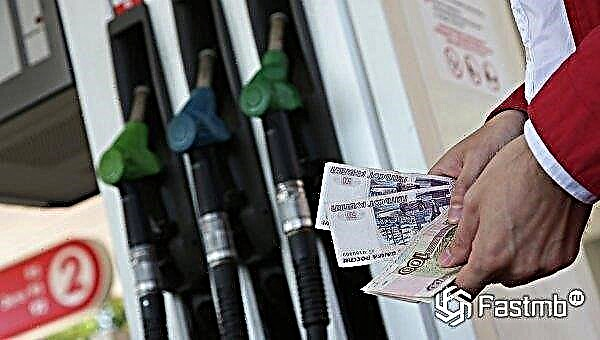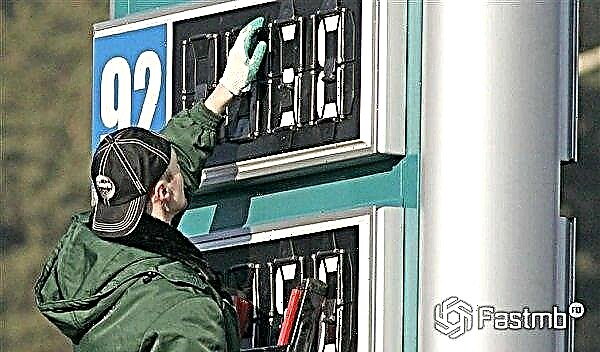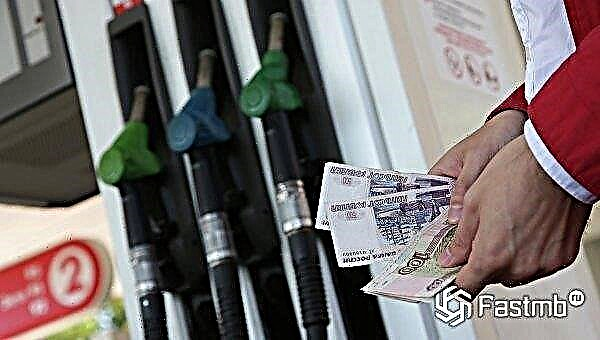An article about why gasoline prices are growing in Russia, what the price of fuel depends on and how it is calculated. Logical paradoxes when calculating gasoline prices. Rosstat testifies that gasoline in the country has risen in price since January, if we average the rise in prices for different types of fuel, by 0.3%.

The content of the article:
- Why is the price of gasoline rising
- What determines the price of fuel
- Different approaches to forecasting and calculating gasoline prices
Economists explain this phenomenon by the fact that excise taxes have doubled since the beginning of the year. 1 liter has become 2 rubles more expensive on average. The fact that gasoline rose in price on the exchange market also had an effect.
Logical paradoxes in action
It would seem that the connection between the two quantities, "the cost of crude oil" and "the price of gasoline", is at the level of a problem in formal logic for the lower grades. If oil becomes cheaper, then the gasoline from which it is produced should also become cheaper. But this is ideally and "without adjusting for the wind." Although at the official level, it seems, this is how they understand this relationship. In any case, the Minister of Finance of the Russian Federation Anton Siluanov believes that the increase in excise taxes will bring additional 90 billion rubles of income to the budget, but at the same time car owners will not feel the rise in price, because "oil is getting cheaper, and gasoline will also get cheaper."
So why, after all, gasoline is getting more and more expensive, only the rate at which the price tags are growing is changing?
Let's start with the fact that the budget profit of 90 billion rubles also seems dubious. Indeed, the increase in excise taxes should give a direct increase in budget revenues. In this case, the excise tax is directly added to the price of gasoline. However, the above figure is obtained if the consumption of gasoline remains at the same level. Today, there are factors that can change the situation. In particular, effective demand. At present, this demand from the population, entrepreneurs and companies is practically exhausted. Prices will rise, but demand will drop. Moreover, the latter will fall more than the rise in the price of fuel. As a result, the increase in excise taxes will reduce budget revenues, at the same time causing a drop in production in the country.
Now let's get back to the constant rise in the price of gasoline. Previously, it was mainly explained by the fact that oil on the world market is expensive, so it is unprofitable for oil companies to sell it domestically at low prices. They say that the laws of a free economic model work, and nothing can be done about it. But now oil is falling in value on world markets. And gasoline prices in Russia continue to go up.
Now officials do not like to refer to the situation on the world market, but point out other reasons, often rather unconvincing, which cannot but irritate consumers who do not fully understand what they are paying for. Russia is one of the world leaders in oil production, and gasoline is becoming more expensive for the domestic buyer. But there is an explanation for this paradox - correct, or not entirely correct, this is another question. And at first glance it sounds quite paradoxical - the price of gasoline practically does not depend on the price of crude oil.
Gasoline price as the sum of its components

Any price is added up by adding up. And the cost of raw materials is not always decisive. The price of fuel largely depends on the amount of various taxes, the cost of production, the profits of oil refineries, owners of gas stations. Experts say that the cost of oil is only about 7% of the price of gasoline, which the consumer pays for it, pouring into the tank of the car. But different types of taxes, excise taxes, VAT affect the value of 60% of the cost of a liter of automotive fuel in the Russian Federation. And this is not a purely Russian phenomenon, but a worldwide practice. Thus, in the United States, the tax component of the cost of gasoline is 50%. At the same time, the incorrect figure of 12% is sometimes given. But this is only a fraction of the taxes levied on gasoline. It is also necessary to add taxes that are levied on oil production itself and export taxes in countries that supply their oil to the American market. So the averaged 50% comes out as a result.
In Russian realities, the rise in gasoline prices is also due to the fact that now oilmen are trying to compensate for their losses on foreign markets at the expense of the domestic market.
Some prominent experts agree with this line of thought. This, for example, is the opinion of Vladimir Milov, director of the Energy Policy Institute. He is sure that the reason for the rise in gasoline prices is the inflation of margins, which became possible due to the fact that the entire oil industry of the country, including refining and marketing, is overly oligopolized. And the explanations of the hired "experts" about the large component of taxes are a trick, diverting from the true state of affairs. At the same time, V. Miliy still believes that gasoline cannot become cheaper at times. Producers must make a profit. But if gasoline rises in price against the background of falling oil prices, then this is a sign of an unhealthy situation in the entire chain from oil production to fuel sales.
You can count in different ways

In the past "fat" years, even at the state level, it was often customary to voice the numbers in two terms - first in the national currency, and then separately in US dollars. From the moment the ruble went down, the dollar equivalent at the level of incomes and the amount of support for state programs has died. However, when it comes to the cost of gasoline, the statement is often voiced that gasoline has not actually risen in price, because if you recalculate its price in dollars, you get a completely different trend. This approach is not that completely meaningless, but strictly speaking, it is a distortion of the facts. There is undoubtedly a dollar component in the production of automobile fuel - this is imported equipment for oil production and oil refining. But the lion's share falls on the wages of Russian citizens employed in the oil industry, and on taxes and excise taxes, measured in rubles.
The question of gasoline prices as explained by officials of various Russian departments at all times has been and is some kind of puzzle. There was never a clear answer, a forecast for the cost of one liter. The consumer is already accustomed to not trusting such forecasts, since representatives of different departments may differ at times not only in numbers, but also in the direction - rise in price, reduction in price.
It seems that mathematics has nothing to do with it, it is rather a fortune-telling. So, at the parliamentary hearings, the Deputy Minister of Finance spoke about the rise in gasoline prices within 5%. But then the Deputy Energy Minister named a different figure - 10%. That's the whole forecast. For a buyer of gasoline, such a difference in forecasts is significant, based on the price, one has to plan a family budget or business. But another prediction could have sounded just as well. No one is subsequently responsible for the prediction, then everyone is habitually blamed on changing the mysterious and not too definite economic situation. At the same time, everyone already knows that for some reason this conjuncture always works against the consumer of automobile fuel and never works in his favor. During the period when oil prices in the world fell by 20%, gasoline became more expensive for a buyer in Russia by 5%.
This paradox cannot be explained in terms of a large tax component in the cost of fuel. If we consider the price as a sum, then a decrease in one component, while the others remain unchanged, can only lead to a decrease in the price of one liter of fuel.For some reason, officials are in no hurry to explain how this happens using arithmetic, preferring lengthy reasoning and a method of guessing about forecasts. At the same time, they are in no hurry to recall past predictions. One gets the impression that the rise in fuel prices is some kind of natural, inevitable process that cannot be resisted at the state level, and officials only justify it. But the economy is man-made, although it obeys strict laws, this is not a tsunami or an earthquake. Oil producing and oil refining companies are interested in maintaining high prices for gasoline and a certain pegging of them to the dollar exchange rate. If the tax component of the price is large, then it can be reduced, and this will not necessarily lead to a decrease in budget revenues.
Deprecated gasoline can become an engine for the growth of the country's economy. The expenses of the population and business on transport will instantly decrease. The transport component in the prices of all products will decrease. The funds freed up will be used for consumption, including the purchase of new cars and investments. There will be a recovery in the real sector of the economy. Last but not least, prices for agricultural products will decrease, and their production will expand. Inflation will stop. Hence, new incomes to the budget, and a gradual increase in the welfare of citizens.
Immediate filling of the budget is a necessary thing. However, the means should not turn into an end. The tax burden on the price of gasoline must be reduced, although at first it will be painful for the budget. Experts believe that this component can actually be halved. But this requires political will. If in the past Russia found itself hooked on the oil needle, which largely led to the current crisis, then it would be nice to use this dependence for the benefit of economic development today, but in a different way. The crisis comes and goes, but oil remains in the depths, it has not gone anywhere.











